'The only.' 'Too' something. 'Not enough.' Asians reflect on AAPI month
"Maraming salamat po!" "Xiexie!" "Cam on!" "Kamsahamnida!" "Arigato!" "Khob Khun!"
Or in English, "thank you!"
This roundup is for the Asians in news and pop culture who influenced so many of us growing up in the States.
Perhaps you never realized the impact you had − many of us can relate to being "the only" in the room, striving for perfection or success "to make our parents proud."
With global success stories such as "Crazy Rich Asians" (ahem, the books and the film) and "Everything Everywhere All at Once," (a spot-on Asian-mother-Americanized-daughter relationship) it might seem like Asian Americans are everything and everywhere − all at once. But we've been here. For years. We just weren't necessarily seen or heard.
That's changed. The world has changed.
I'm Jennifer Sangalang, a lead digital producer for USA TODAY Network-Florida and co-chair of Gannett's Asian American Forward employee resource group. Welcome to This is America, a newsletter all about social justice issues.
In honor of Asian American, Native Hawaiian, and Pacific Islander Heritage Month, Gannett’s Asian American Forward Employee Resource Group, which connects almost 130 Asian American employees and allies across the company, wanted to highlight the many rich traditions across cultures. We asked members of our ERG, one of 12 in the USA TODAY Network, to answer this question: "What does AAPI Heritage Month mean to me?"
Here are their answers.
'We only ever learn about white men' in U.S. history
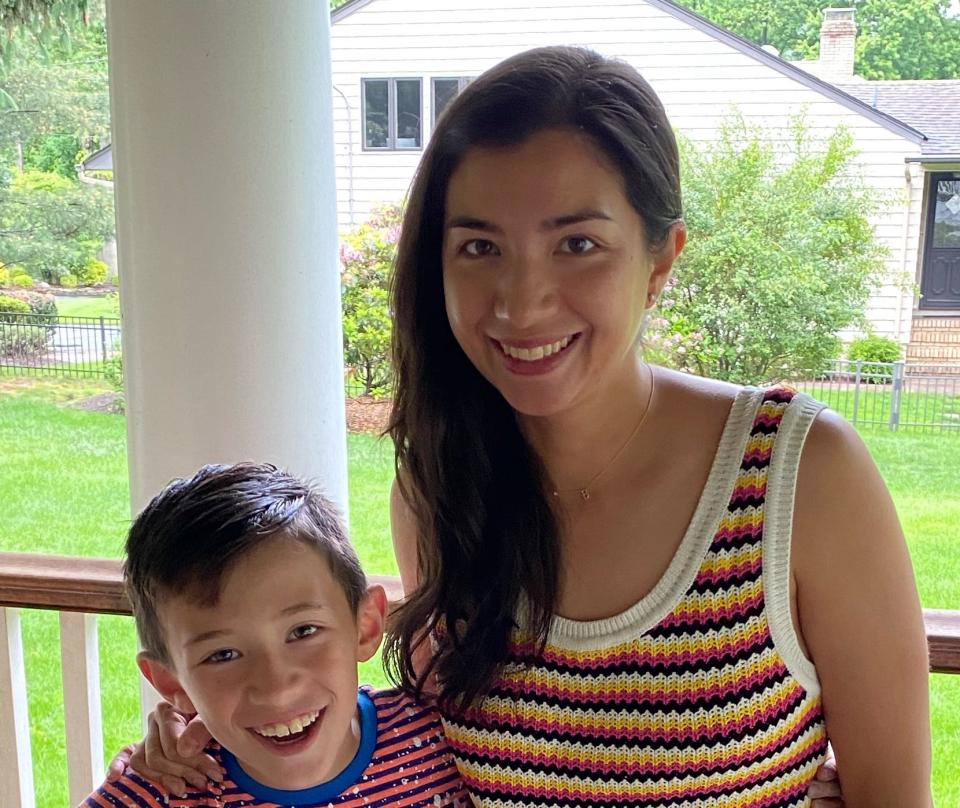
Recently, my 9-year-old son asked me why he almost never learns about Asian American historical figures and heroes at school. He said, “We only ever learn about the white men in American history.”
I told him there are a lot of people working hard to change that, so he and his friends will soon be learning about AAPI contributions to our history and society throughout the school year and not just during AAPI month.
This month reinforces for me why we need to continue to celebrate and support community leaders like the ones that formed Make Us Visible, who helped lead efforts to pass legislation that requires the inclusion of AAPI history in K-12 schools in several states. One day, hopefully, our kids will no longer need to wonder, "Where are the heroes that look like me in history books?"
− Caroline Harris, vice president of Partnerships for Gannett
I was always 'too' something or 'not enough'
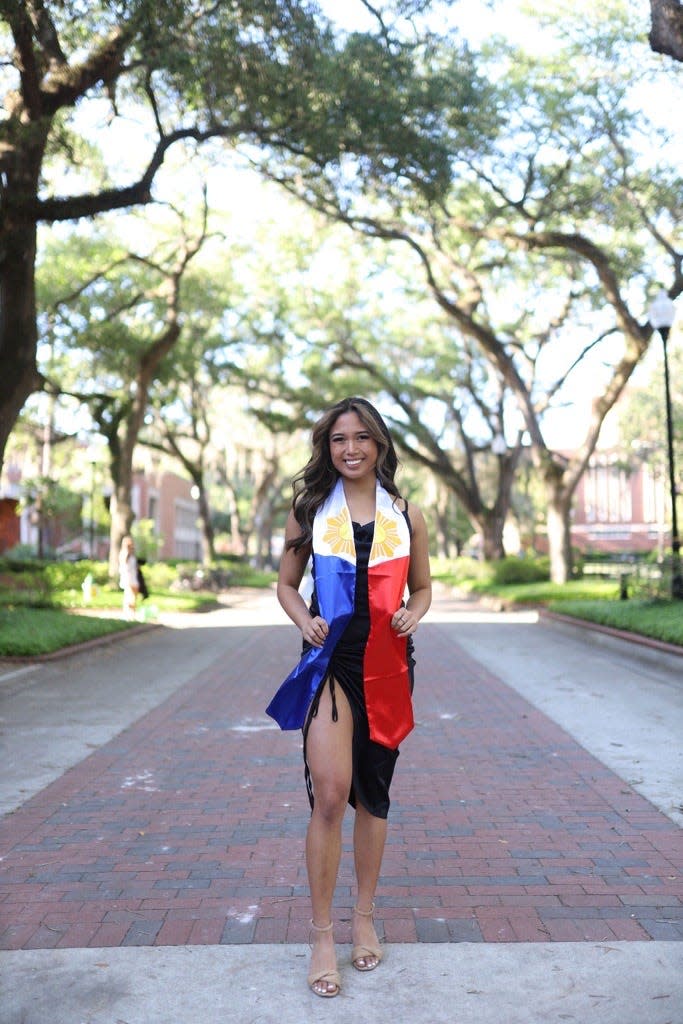
I was always “too" something or “not enough” of another growing up. I feel grateful I am at a point in my life where I can own my experiences and be proud of my identity as an Asian American immigrant woman, but it was definitely not without its challenges. It seems that I am American when I am in the Philippines, but I am Filipina when I am in America. I don’t think there should be a dissonance between the two. Recognizing that our identity is multidimensional and uplifting that multidimensional-ness is what makes society so rich.
− Ari Latras, client success manager at Gannett
I was usually the only Asian student in my class
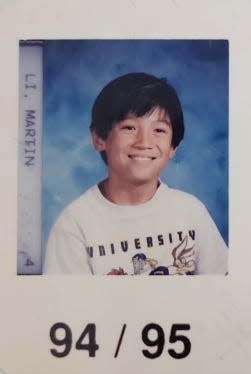
Throughout my childhood, I was usually the only Asian student in my class. So I became the representative of Asian culture to my peers. I entertained questions like, “You speak Chinese? Teach me some bad words!” Or “What do you eat? Does it always have rice?”
Some will see those questions as offensive, but coming from another 10-year-old, I saw this as genuine curiosity. In their minds, "What is Asian culture?" and, in particular, "What is Asian culture in America?" mean the same thing. I see AAPI heritage month as an opportunity to bridge that knowledge gap − creating a space on the calendar where Asian culture can take the spotlight, answer questions and provide more context.
− Martin Li, client advocacy manager at Gannett based in Arizona
'Where are you really from?'
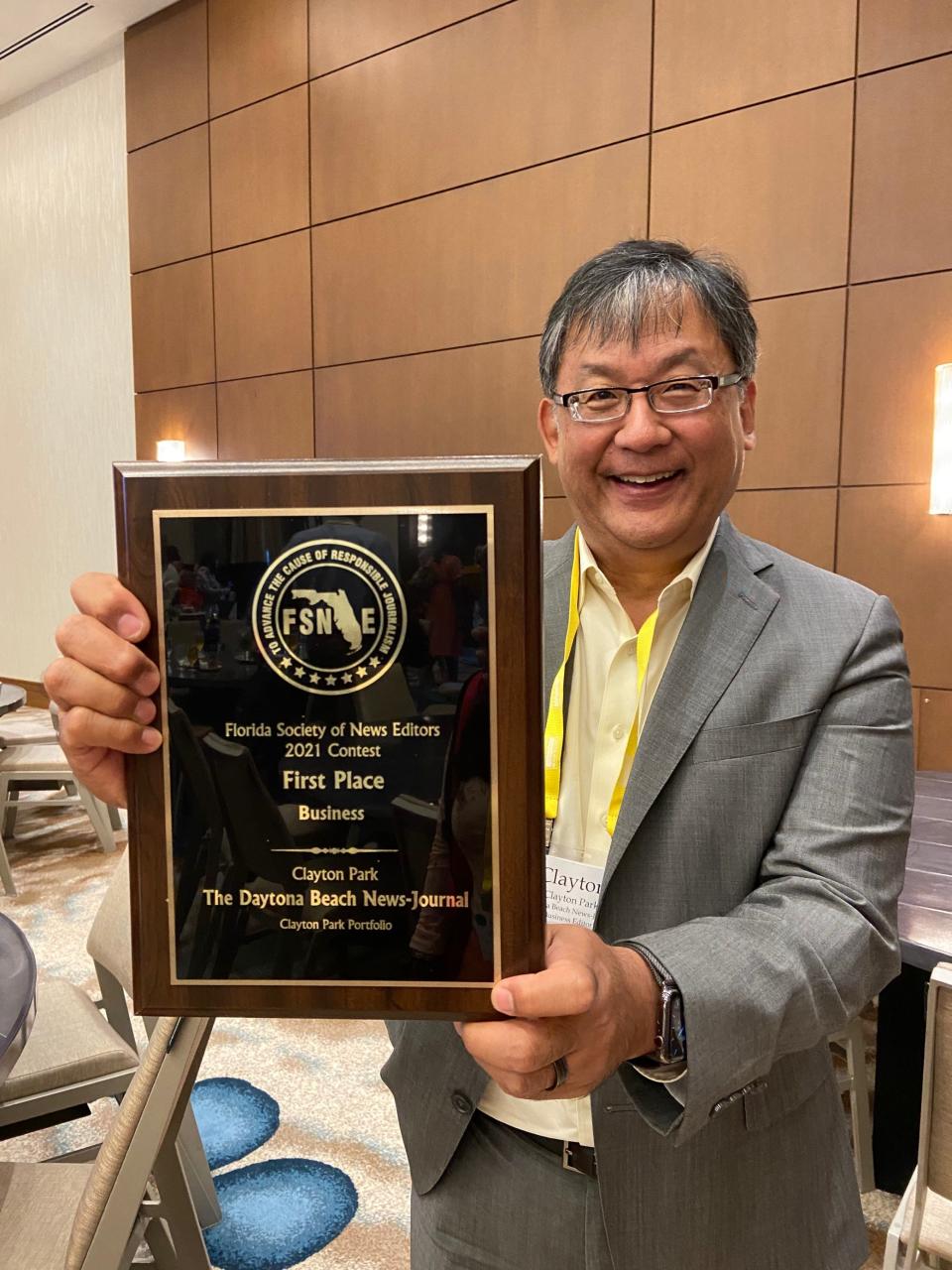
When I was growing up, I don't believe the term "AAPI" existed. I often would be asked by those I met where I was from, and when I would answer that I was from Seattle, they would respond, "No, where are you really from?" And when people would talk about minorities, often they would refer to African Americans and those of Latino descent, but not Asian Americans. It would make me feel invisible.
Fast-forward to today: To have the entire month of May designated as national AAPI month gives me a tremendous feeling. Finally, we Asian Americans and Pacific Islanders are not only being seen, but are accepted as Americans.
− Clayton Park, business editor, Daytona Beach News-Journal
'The joy and beauty of our communities'
I have a complicated relationship with AAPI Heritage Month.
On one hand, I love any opportunity to celebrate our communities. On the other, I'm skeptical of initiatives that feel at times to only center the more surface-level parts of our identities. For example, I often see institutions celebrate AAPI Heritage Month without fully embracing us for our full selves outside these four weeks. And when this month comes each year, I know many of us brace ourselves for the sting of exclusion as celebrations sideline some of us, especially South, Southeast Asian and Native Hawaiian and Pacific Islander communities.
But when I honor this month, I use it as an opportunity to reflect on the historic contributions of our people to the fabric of this nation, including the AAPI community organizers whose power-building paved the way for us all — and for the Black and brown allies who stood by us. It's an opportunity to celebrate multiculturalism and the joy and beauty of our communities, but also to recognize the ways this country has historically denied our communities their humanity and reflect on the systemic racism and violence inflicted against us.
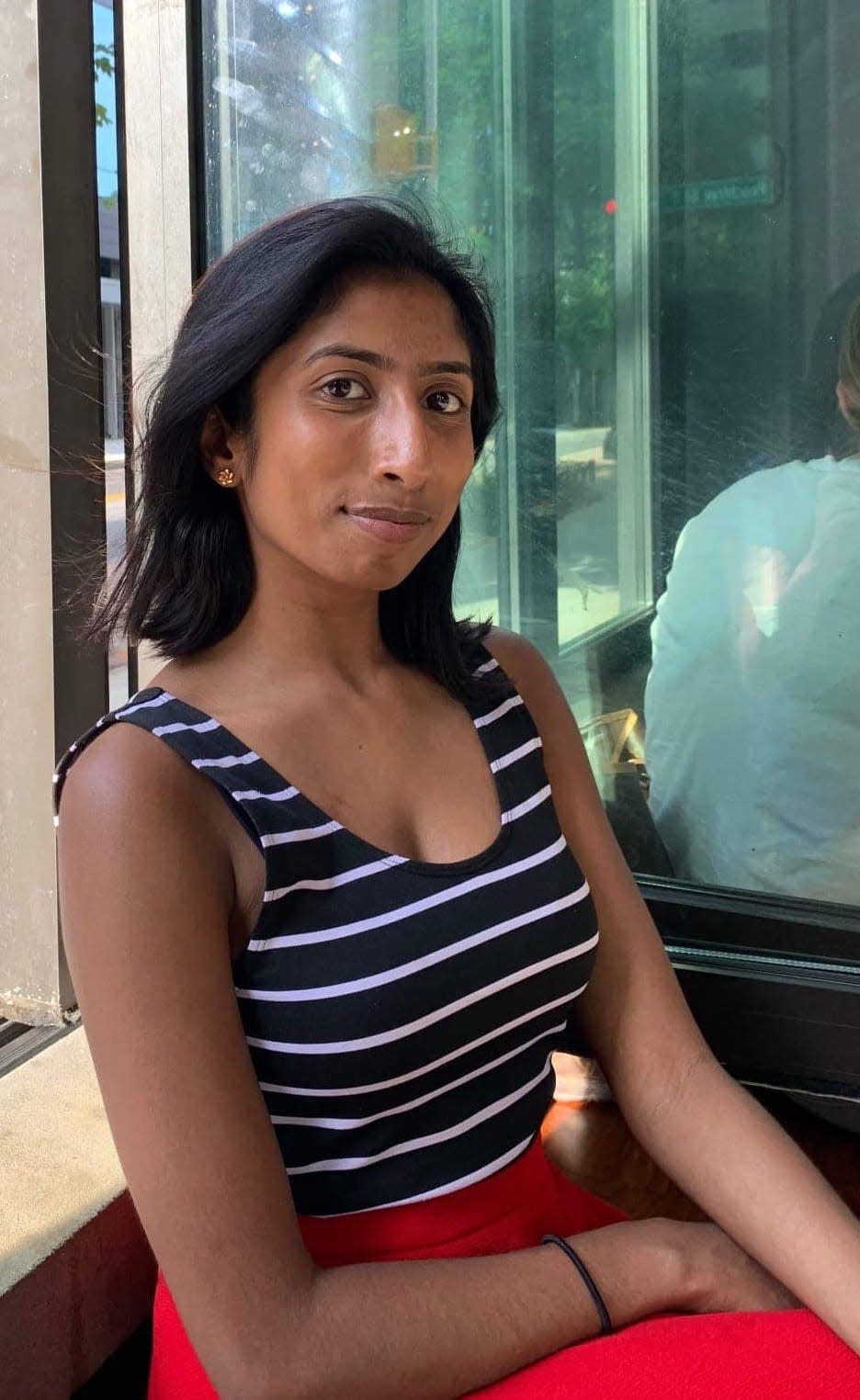
− Christine Fernando, breaking news reporter, USA TODAY
Keep scrolling for more social justice reporting from USA TODAY below and to read the rest of this Opinion-Voices column on USA TODAY, click here. For more information on the ERG, visit gannett.com/inclusion.
This article originally appeared on USA TODAY NETWORK: 'The only.' 'Too' something. 'Not enough.' Asians reflect on AAPI month

